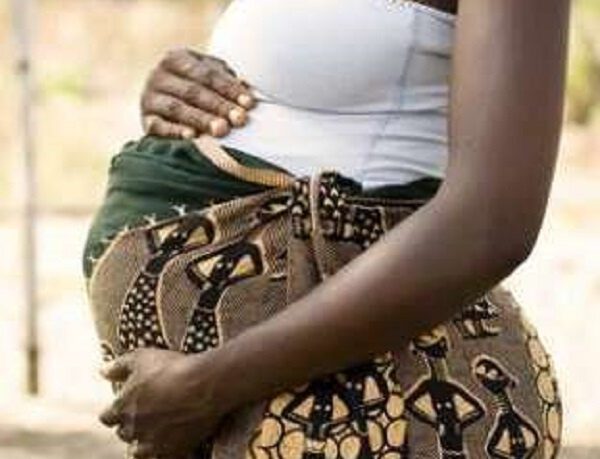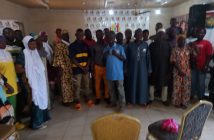More than 1,400 teen girls in the Central Region have been supplied with free sanitary kits and radio sets to support them in the midst of the Coronavirus (COVID-19) crisis.
The gesture was initiated by the International Needs Ghana (ING) in partnership with the Central Region Department of Gender and funded by the United Nations Children’s Fund (UNICEF) and the United Nations Population Fund (UNFPA).
The beneficiaries received three months’ supply of sanitary pads, hand sanitizers and tissues to cushion them in wake of the deadly pandemic.
Additionally, about 1,200 beneficiaries were also given radio sets to provide them real-time information, media learning programs, updates on adolescent reproductive health issues, and Covid-19 information on safety protocols to stay safe.
The beneficiaries were selected from Cape Coast Metropolis, Mfantseman, and the Komenda-Edina-Eguafo-Abrem (KEEA) Municipalities in the Region.
They were part of the Promoting Adolescent Safe Spaces for girls (PASS) project, who have undergone over a year’s training on Adolescent Sexual Reproductive Health (ASRH), Sexual and Gender-based Violence (SGBV) and income generation skills to empower them to reach their full potentials.
Mrs Thywill Eyra Kpe, the Regional Director of the Department of Gender disclosed this in an interview with the Ghana News Agency after a two-day training program for Community Parents Network Advocacy Groups (COPNAG) under the theme “Combating Adolescent Pregnancy and Sexual Abuse in the wake of COVID 19: the Role of Parents”.
According to her, the move was expected to serve the needs of the vulnerabilities of adolescents, particularly girls, to help tackle teen pregnancy and child marriage in the Region.
“Adolescent girls need access to improved Sexual Reproductive Health Right (SRHR) information and services to be able to participate in the social and economic development of their society as well as for improved quality of life.
Parents, she stated, play very critical role, hence the formation of COPNAG in over 15 communities to support advocacy on SRHR and parental responsibility issues.
Mrs. Kpe explained that the period of adolescence was critical because it profoundly influences girls’ future potentials and life outcomes, describing the period as a key transition from girlhood to womanhood.
They must, therefore, be empowered with all the needed information to enable them to make informed decisions to help the girls to deal with the risks the transitions often expose them to, which included dropping out of school and child marriages.
The Gender Activist said the holistic development of the adolescent girl was the Department’s core mandate, hence the decision to throw its weight behind the initiative to combat gender inequality and poverty.
“Other risks are adolescent pregnancy, obstetric fistula and maternal mortality, anaemia, among others.”
She cautioned the parents against reneging on their legal responsibility to provide the basic needs including sanitary pads for their children.
“We want to make sure adolescent girls remain in school and that they have everything they need to continue their education, so that they can fulfil their potentials and contribute to national development in the future, and parent are key in realizing this,” Mrs Kpe said.
The Regional Director of Gender praised the relentless roles of key partners; the UNFPA for its Adolescent Girls and Child Marriage programs leading to reduction in adolescent pregnancies and promoting good maternal health.
Other partners are the National Youth Authority (NYA), the Ghana Health Service (GHS), the Domestic Violence and Victim Support Unit (DOVVSU) and International Needs Ghana.
Outlining some future plans, she reiterated that the Department of Gender will sustain the formation of adolescent health clubs in schools and “Time with Grandma” Programme, interactive mentorship and reading sessions, as well as training of sexuality education facilitators.
She reiterated the Department’s commitment to provide support to facilitate adolescent girls’ access to gender-responsive sexuality education and ASRH and SGBV information and services.
Source: www.ghanaweb.com





